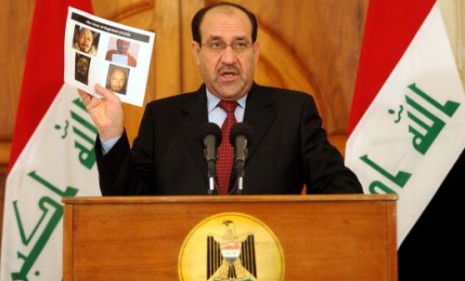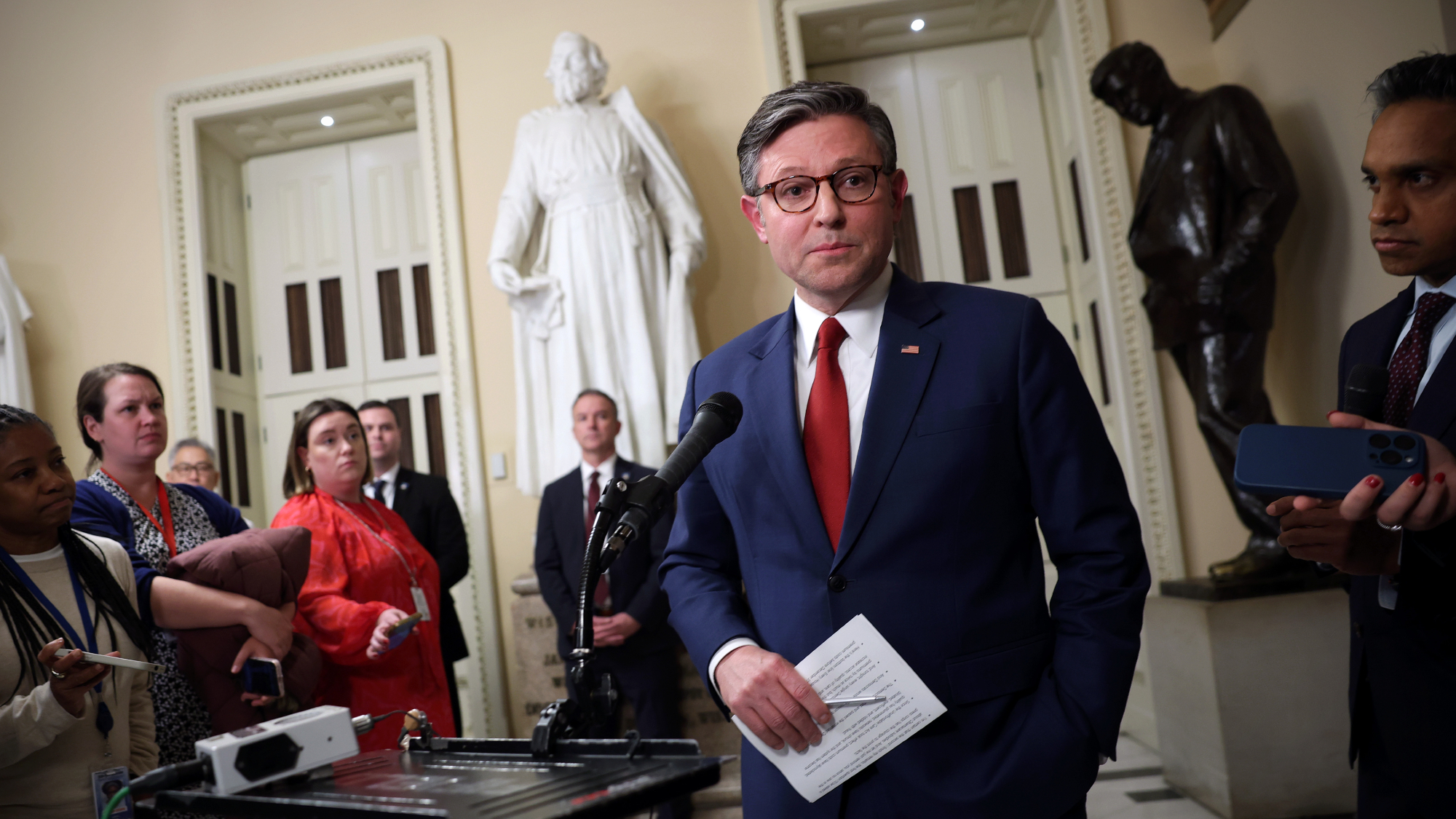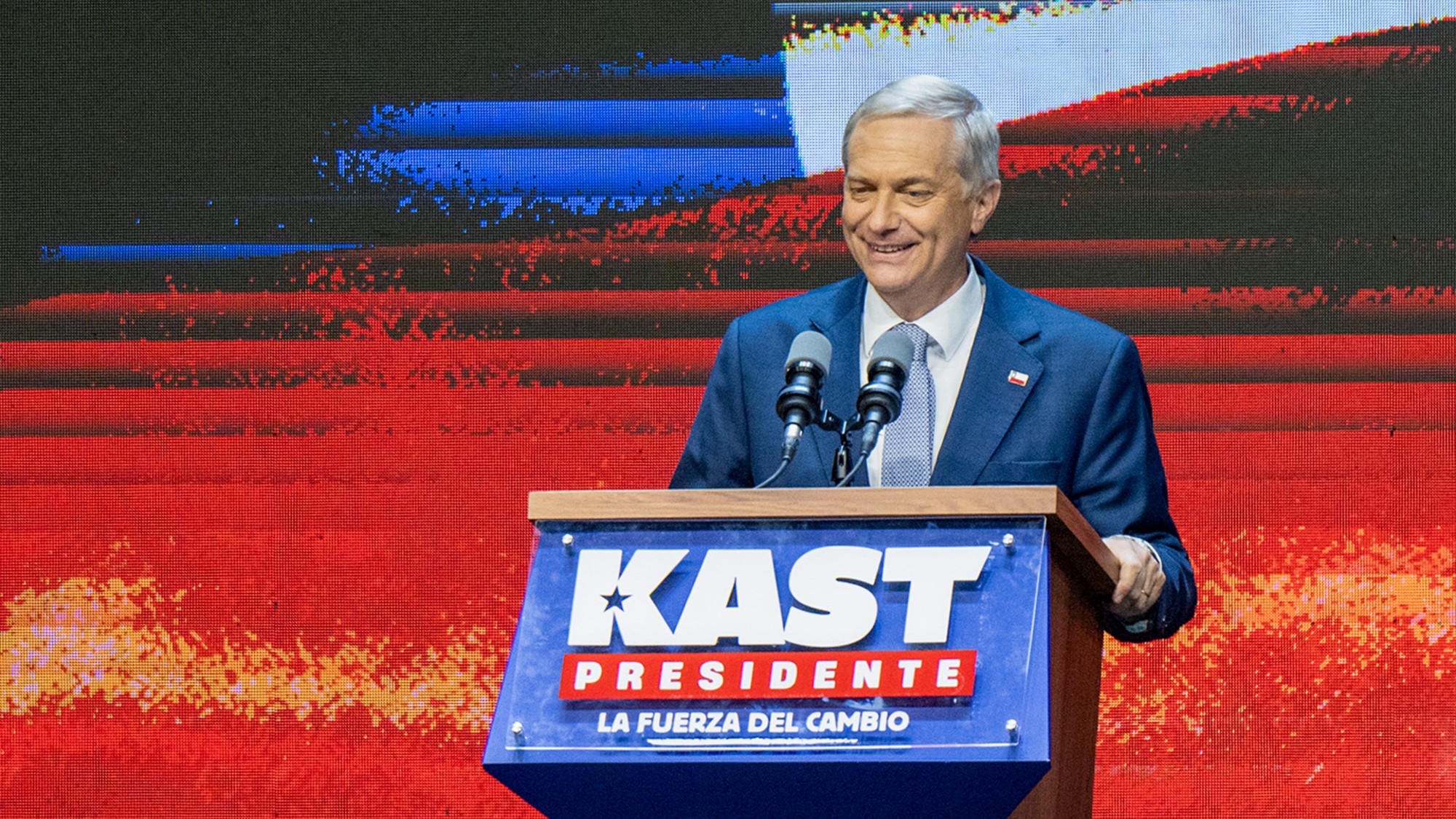Al Qaeda kingpin killed: Does it matter?
Two of al Qaeda's senior leaders were killed in Iraq Monday. Is this as significant a blow to the insurgents as U.S. leaders say?

In what Vice President Joe Biden on Monday called a "potentially devasting blow" to al Qaeda in Iraq, U.S. and Iraqi forces killed two top insurgent leaders in a raid near Tikrit, hometown of the late dictator Saddam Hussein. Who were these men, and will their deaths really weaken the insurgency?
Who were the two men killed in the raid?
Abu Ayyub al-Masri, an Egyptian, was the leader of al Qaeda in Iraq. Abu Omar al-Baghdadi was head of the group's umbrella organization, the Islamic State of Iraq. Both men had been reported captured or killed before, but this time Iraq's prime minister, Nouri al-Maliki, produced photographs of their bodies, and the U.S. military reportedly confirmed their identities using DNA testing.
The Week
Escape your echo chamber. Get the facts behind the news, plus analysis from multiple perspectives.

Sign up for The Week's Free Newsletters
From our morning news briefing to a weekly Good News Newsletter, get the best of The Week delivered directly to your inbox.
From our morning news briefing to a weekly Good News Newsletter, get the best of The Week delivered directly to your inbox.
How important were they in the insurgency?
Both al-Masri and al-Baghdadi were "directly responsible for high-profile bombings and attacks against the people of Iraq," according to the U.S. military. After a bomb was dropped on the house where they were hiding out, soldiers went inside and found computers and letters, including communication between the men and Osama bin Laden. "This is clearly a victory in propaganda terms," Toby Dodge at the International Institute for Strategic Studies in London told Britain's Guardian, "and possibly also in terms of capacity."
Wasn't the insurgency already struggling?
Yes, al Qaeda in Iraq, also known as al Qaeda in Mesopotamia, and other parts of the Sunni insurgency were weakened during the U.S. troop surge in 2007. Ahead of the surge, American forces, offering cash and promising jobs, also persuaded many fighters to switch sides in what became known as the Awakening. But recent attacks—including triple suicide bombings that killed 30 people at foreign embassies in Baghdad ealier this month—had raised fears that al Qaeda was making a comeback as U.S. troops began to withdraw.
A free daily email with the biggest news stories of the day – and the best features from TheWeek.com
Will the deaths of al-Masri and al-Baghdadi really make a difference?
Gen. Ray Odierno, the U.S. commander in Iraq, says this is "a significant step forward in ridding Iraq of terrorists." And the news helped bolster the image of Prime Minister Nouri al-Maliki's government and the Iraqi security forces at a critical moment. But it will take time to see whether this will diminish the insurgents' ability to stage attacks, and not everybody is convinced. "Al Qaeda can replace their leaders, and terrorism and violence will not end in Iraq," shopkeeper Mahmood Hussein, 45, told The Washington Post. "The Iraqi citizens don't care about this news. We care about job opportunities and a new government forming soon that won't be as greedy."
Sources: NY Times, Politico, Guardian, The Washington Post
-
 House GOP revolt forces vote on ACA subsidies
House GOP revolt forces vote on ACA subsidiesSpeed Read The new health care bill would lower some costs but not extend expiring Affordable Care Act subsidies
-
 ‘Kast’s victory is a political and ethical earthquake’
‘Kast’s victory is a political and ethical earthquake’Instant Opinion Opinion, comment and editorials of the day
-
 Turner Prize 2025: ‘artistic excellence’ or ‘cultural nonsense’?
Turner Prize 2025: ‘artistic excellence’ or ‘cultural nonsense’?Talking Point Work by the four artists nominated for this year’s award is on display at Bradford’s Cartwright Hall